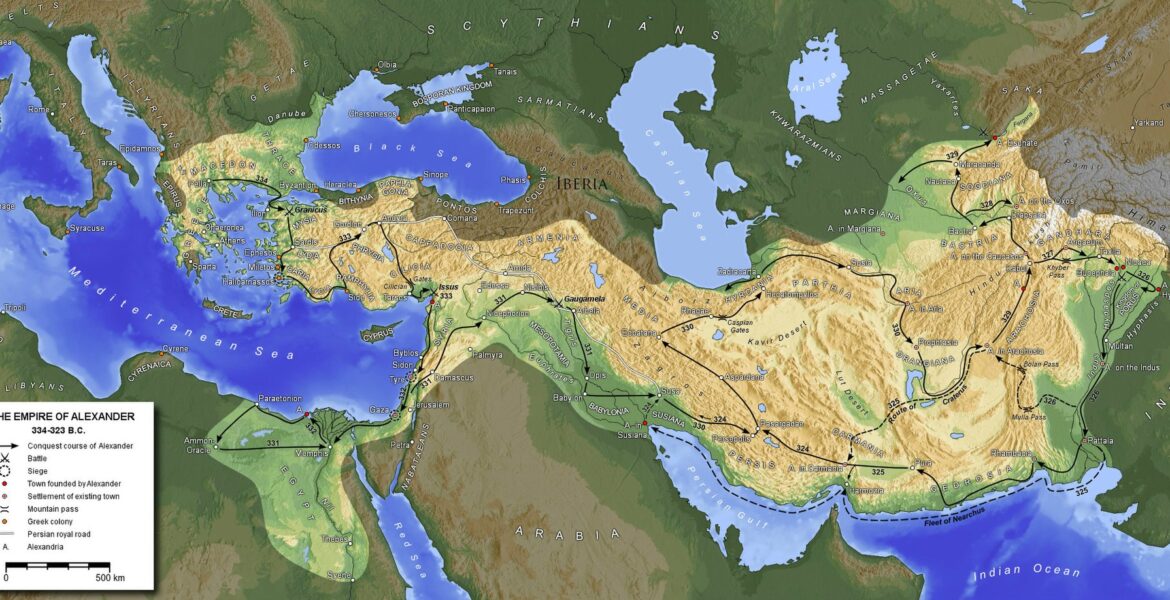The aim is to map out Alexander the Great’s Empire: the extent of his empire, the main cities he visited, the battles that he fought and the new cities that he founded.
Any input or contributions are greatly appreciated.
Years of internal wars weakened the once powerful Greek city-states of Sparta, Athens, Thebes, and Corinth. Philip II of Macedon (northern Greece) rose to power and, in 338 BC, he rode south and conquered the cities of Thebes and Athens, uniting most of Greece under his rule.
Upon Philip II's death, his son, Alexander the Great, took control. Alexander was a great general. He proceeded to conquer all of the lands between Greece and India including Egypt.
Greece Divided
When Alexander the Great died, there was a huge gap in power. Alexander's empire was divided among his generals. These new divisions soon began fighting. Although the Greek culture had spread throughout much of the world, it was politically divided.
Hellenistic Greece
The period of Ancient Greece after Alexander the Great is called Hellenistic Greece. During this time, the city-states of Greece fell into decline. The real centers of Greek culture moved to other areas in the world including the cities of Alexandria (Egypt), Antioch (Turkey), and Ephesus (Turkey).
READ MORE: Ptolemy's hidden Greek text deciphered after 200 years.

